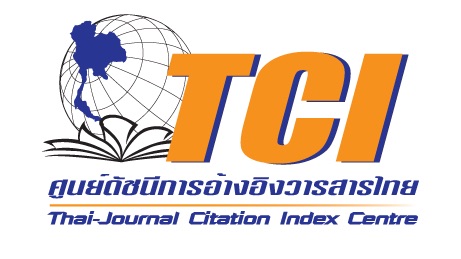Development of Capacity of Village Public Health Volunteers According to the Buddhist Dhamma Principles in Mueang Suphan Buri District in Suphan Buri Province
Keywords:
Development of Capacity, Performance, Buddhist Dhamma Principles, Village Public Health VolunteersAbstract
This research aimed to: 1) study the level of performance capacity of village public health volunteers, 2) study the relationship between the development of performance capacity according to the Buddhist Dharma principles and the capacity of village public health volunteers, and 3) study the guidelines for developing performance capacity according to Buddhist Dharma principles of village public health volunteers in Mueang district, Suphan Buri Province. The mixed-method research was applied in this research. For the quantitative study, 343 village public health volunteers in Mueang Suphan Buri District, Suphan Buri Province were the samples selected by using simple random sampling method. The questionnaire was used for data collection. The data were analyzed by using Statistical Package for Social Sciences, by calculating frequency, percentage, mean, and standard deviation, and Pearson’s Product-moment Correlation Coefficient was used for testing the hypotheses. For the qualitative study, the data were collected by using interview form from 10 key informants, selected by using purposive sampling method, consisting of the directors and executives of Tambon Health Promoting Hospital, Public health officer, chairmen of the village public health volunteer group, representatives of village public health volunteers, people or service recipients, and Buddhist scholars or monks. The interview data were analyzed by using the Content Analysis Technique. The research results were as follows: 1) The performance capacity of village public health volunteers was overall at a high level. And, the development of the performance capacity according to the Buddhist Dhamma principles of the village public health volunteers was overall at a high level, 2) There was a positive relationship at a high level with statistical significance at the 0.01 level between the development of the performance capacity according to the Buddhist Dhamma principles of village public health volunteers and the performance capacity of village public health volunteers, and 3) The guidelines for developing the performance capacity according to Buddhist Dhamma principles of village public health volunteers in Mueang District, Suphan Buri Province, were as follows: 3.1) Chanda aspect (love in duty): there should be training to educate all village public health volunteers to create understanding and awareness of their own roles and responsibilities leading to attention in performing duties efficiently, 3.2) Wiriya aspect (an effort to act): there should be time planning, allocation of personnel according to the workload, allocation of budget, and allocation of equipment and tools to be ready and sufficient for duty performance, 3.3) Chitta aspect (concentration on what to do): there should be training to increase knowledge by a team of doctors and public health officials to provide knowledge to the village public health volunteers and to be able to transfer to the people correctly, and 3.4) Wimangsa aspect (consideration on assigned workload): there should be a strong team, a work plan, and using consciousness, prudence, determination, and knowledge sharing among each other to improve and complete the planned task.
References
กนกภัส วงษ์ภากนกภณ. (2558). การปฏิบัติงานตามหลักอิทธิบาทธรรมของบุคลากรองค์การบริหารส่วนตำบลในอำเภอบางปลาม้า จังหวัดสุพรรณบุรี [วิทยานิพนธ์ พุทธศาสตรมหาบัณฑิต สาขาวิชารัฐประศาสนศาสตร์ ไม่ได้ตีพิมพ์]. มหาวิทยาลัยมหาจุฬาลงกรณราชวิทยาลัย.
กรมสนับสนุนบริการสุขภาพ. (2554). คู่มือ อสม. ยุคใหม่. ชุมนุมสหกรณ์การเกษตรแห่งประเทศไทย.
กระทรวงสาธารณสุข. (2542). การสาธารณสุขไทย พ.ศ. 2540-2541. องค์การสงเคราะห์ทหารผ่านศึก.
กุลชญา ลอยหา, เด่นดวงดี ศรีสุระ, มณฑิชา รักศิลป์, ชนฏ์พงศ์ เคลือศิริ, ภัทรภร เจริญบุตร, รมณียากร มูลสิน, สุชาดา นาสา และจำลอง วงศ์ประเสริฐ (2560). การเสริมสร้างศักยภาพบทบาทของนักจัดการสุขภาพชุมชนของอาสาสมัครสาธารณสุขประจำหมู่บ้านในเขตตำบลบุเปือย อำเภอน้ำยืน จังหวัดอุบลราชธานี. สำนักงานป้องกันควบคุมโรคที่ 7 ขอนแก่น, 24(1), 1-13.
จุฬาพรณ์ โสตะ. (2554). แนวคิด ทฤษฎีและการประยุกต์ใช้เพื่อการพัฒนาพฤติกรรมสุขภาพ. สำนักพิมพ์แห่งมหาวิทยาลัยขอนแก่น.
ชนิดา เตชะปัน, สิวลี รัตนปัญญา และสามารถ ใจเตี้ย. (2562). การเสริมสร้างพลังอำนาจในการดำเนินงานด้านสุขศึกษาชุมชนของอาสาสมัครสาธารณสุขประจำหมู่บ้านเทศบาลตำบลป่าไผ่ อำเภอสันทราย จังหวัดเชียงใหม่. วารสารวิทยาลัยบัณฑิตเอเชีย, 9(1), 17-24.
พระครูปลัดอนุวัติ ธมฺมวโร (ทำนา). (2558). การประยุกต์ใช้หลักอิทธิบาท 4 ในการส่งเสริมการอนุรักษ์ภูมิปัญญาท้องถิ่นของบุคลากรในเทศบาล ตำบลบ้านเวียง อำเภอร้องกวาง จังหวัดแพร่ [วิทยานิพนธ์พุทธศาสตรมหาบัณฑิต สาขาวิชารัฐประศาสนศาสตร์ ไม่ได้ตีพิมพ์]. มหาจุฬาลงกรณราชวิทยาลัย.
พระมหาทองมี สุทฺธิจิตฺโต (สะพานหล้า). (2556). การปฏิบัติงานของพนักงานการไฟฟ้านครหลวงตามหลักอิทธิบาท 4 กรณีศึกษา การไฟฟ้านครหลวง เขตวัดเลียบ กรุงเทพมหานคร [วิทยานิพนธ์พุทธศาสตรมหาบัณฑิต สาขาวิชารัฐประศาสนศาสตร์ ไม่ได้ตีพิมพ์]. มหาวิทยาลัยมหาจุฬาลงกรณราชวิทยาลัย.
พระเอกพันธ์ ธีรภทฺโท (วิมานทอง). (2556). การปฏิบัติหน้าที่ตามหลักอิทธิบาท 4 ของบุคลากรสำนักงาน เขตบางพลัด กรุงเทพมหานคร [วิทยานิพนธ์พุทธศาสตรมหาบัณฑิต สาขาวิชารัฐประศาสนศาสตร์ ไม่ได้ตีพิมพ์]. มหาวิทยาลัยมหาจุฬาลงกรณราชวิทยาลัย.
ระบบสารสนเทศงานสุขภาพภาคประชาชน. (2564, 15 พฤษภาคม). ข้อมูล อสม. แยกตามหมู่บ้าน จังหวัดสุพรรณบุรี. http://www.thaiphc.net/phc/phcadmin/ administrator/ Report/ OSMRP000S9.php.
สำนักงานสาธารณสุขจังหวัดสุพรรณบุรี. (2564, 16 พฤษภาคม). สรุปจำนวนอาสาสมัครสาธารณสุขประจำหมู่บ้าน จำแนกหน่วยบริการ สังกัดสำนักงานสาธารณสุขจังหวัดสุพรรณบุรี. http://www.spo.moph.go.th
สิน พันธุ์พินิจ. (2554). เทคนิคการวิจัยทางสังคมศาสตร์ (พิมพ์ครั้งที่ 2). วิทยพัฒน์.
Peter, J. (2021, May 16). Thailand’s 1 million village health volunteers- “unsung heroes” - are helping guard communities nationwide from COVID-19 แปลโดย สุวิมล สงวนสัตย์.https://www.who.int/thailand/news/ feature-stories/detail/thailands-1-million-village-health-volunteers-unsung-heroes-are-helping-guard-communities-nationwide-from-covid-19-TH
Yamane, T. (1973). Statistics: An Introductory Analysis (3rd ed.). Harper and Row.
Downloads
Published
How to Cite
Issue
Section
License

This work is licensed under a Creative Commons Attribution-NonCommercial-NoDerivatives 4.0 International License.







